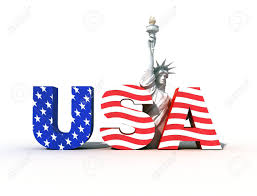The Sri Lankan Government in 2014 paid US$ 6.5mn through its Central Bank to an American businessman, who was a CIA mole, to buy influence and fix its image in the US, an investigative report in the Wall Street Journal (WSJ) now reveals, following his sentencing for 12 years in prison after pleading guilty to tax evasion, foreign-influence peddling and campaign finance violations.
The businessman, Imaad Zuberi, had been a mole for the US spy network, Central Intelligence Agency (CIA), for more than a decade. A US court held that of the money given to him on behalf of the Sri Lankan taxpayers, US$ 5.6m or 87 percent of it had been spent on himself and his wife.
A key aspect of the case played out in secret court filings and hearings. Mr. Zuberi was a longtime US intelligence source for the US Government. Byron Tau, the WSJ journalist, cites legal documents and people familiar with the businessman’s defence.
The Sunday Times first exclusively exposed in July 2014 that the Government had engaged Mr Zuberi, who purported to be a lobbyist. The payments were so covertly done that neither the Cabinet nor Parliament knew. And they were made through the Central Bank of Sri Lanka (CBSL)–headed at the time by Ajith Nivard Cabraal–to evade oversight from either.
Mr Zuberi’s lawyers have argued that some of the conduct he was charged with was linked to CIA officials who worked with him, Mr Tau reports. “In one instance, according to the documents they prepared, a former CIA handler of Mr. Zuberi sought and got a job on the project involving Sri Lanka that was later the basis for criminal charges against Mr. Zuberi,” the article states.
“After securing a role in the project, the former handler tried to persuade the Sri Lankans to buy a maritime-surveillance system that could keep watch on a swath of the Indian Ocean, according to two people familiar with the effort,” it says. “At the time the US Government was concerned about Chinese submarine forays. The former handler told consultants on the project that he had worked for the State Department, the people said, but a spokesperson for the department said it has no record of his employment there.”
The Justice Department has moved aggressively in recent years to crack down on foreign influence in the US, Mr Tau writes. The CIA, meanwhile, relies on well-connected Americans to serve as conduits for information, occasionally tapping them for information, introductions, assistance in recruiting foreigners and even for tasks such as acting as international couriers or acquiring secrets.
“After his guilty plea but before his sentencing, Mr Zuberi’s legal team compiled a history of their client’s cooperation with the government, according to the legal documents and people familiar with the defence, which was sealed under a law called the Classified Information Procedures Act, or CIPA, designed to protect intelligence sources and methods during trials,” the article reveals. “CIPA can only be invoked when national-security issues are at stake and a judge signs the sealing order.”
Mr. Zuberi’s history of secret help to the CIA on and off for more than a decade is detailed in the documents—depicting a relationship that started with debriefings about his interactions with foreign officials but grew to involve more formal tasks and missions, Mr Tau reports.
“The foreign-influence-peddling charge to which Mr. Zuberi pleaded guilty stemmed from his efforts in 2014 to help Sri Lanka with a campaign to burnish its image in the US,” he says. “After his plea on that count, prosecutors detailed interactions with other countries beyond Sri Lanka as justification for a longer sentence.”
The Sunday Times repeatedly questioned the manner in which billions of rupees were being funnelled into public relations firms and lobby groups, particularly in 2014. At any given time between 2008 and the end of 2014—more than six years—Sri Lanka’s mission in Washington, the Office of the Monitoring Member of Parliament (MMP) for the Ministry of External Affairs or the Central Bank of Sri Lanka (CBSL) had on their payroll numerous lobbyists and public relations companies.
Documents we traced at the time showed that the US$ 6.5mn Mr Zuberi received via the Central Bank went to a personal account and to WR Group, a company he hurriedly set up. We also reported that the Auditor General’s Department queried the CBSL for three consecutive years about the towering sumps paid in fees to foreign lobbyists, consultants and public relations agencies.
The CBSL became the preferred channel for such payments because its accounts do not go before Parliament. The Treasury or any other Ministry would have needed Parliament’s permission to make such large outlays. The Cabinet was circumvented, and, in the case of most payments, the External Affairs Ministry was also bypassed.


